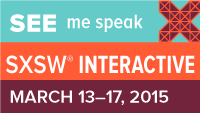In my last blog, I talked about some of the challenges higher education institutions face to be sustainable. Of course no one has all the answers, but I think it’s important to start asking questions and begin thinking about some of these things. I keep hearing the face of education is changing, but will the consequences be disastrous for American Universities? If so, how will that affect the rest of us, and will it change what learning means? Will those universities that make it through the next decade do so by engaging new and potential students in new ways? Is it true that kids will need more convincing of the advantages when departing from their money and taking on new debt becomes a harder sell? (Is it true that I ask too many questions?)
By the way, for anyone who thinks I am spreading unnecessary gloom & doom about the state of higher education financials (or watering it down), here is a more emphatic economic viewpoint here: colleges that will be screwed when the student loan bubble pops, and for an extreme student perspective, try www.uncollege.org.
Meanwhile, I am going to jot down some thoughts about some of the major changes already taking place in response to the pressures burdening higher education. Some examples to explore are: free courses, grassroots education, and online universities. Additionally, I will mention a few other things that universities are doing to adapt, overcome, and survive.
Is it Socialism, or a Techno-Cultural Revolution?
So why should a fresh high school graduate go into debt when they can take free high level courses offered by high profile universities like MIT, Oxford, and Berkley? Why should they struggle to stay awake in endless lectures when they can take the class on their own terms? One answer might be for the credentials, but here are two key facts:
- The perception of a college diploma has done a complete one-eighty in the minds of some in the millennial generation from their grandparent’s day. Universities have to shift their focus and what they have to offer, or they may wither on the vine of progression.
- To make things even more competitive for universities, online colleges are gaining momentum, and credibility. They come at a fraction of the price, although as of yet there is still no legislation to protect students from predatory private loan lending. They do seem to be effective for some applications, even though all the trimmings have been shaved away.
No dorms, no sports, no walking to and from class. They’ve got archived classes, live and interactive classes through webinars, 24/7 tech, and possibly tutoring support, as well as virtual advising. An education in the palm of your hand? Perhaps, if you can tune out everything else around you and pay attention.
The direction that education is going with ebooks, mobile technology, and virtual reality is providing some interesting options as education is being organically socialized through technology.
Traditional Education Plays Along
If students do opt to pay for a university, who will they choose and why? Before answering this rhetorical question, I want to mention a simple truth I just came across that I found interesting. I was previously unaware of this. Apparently, statistics show the male participation rate in the workforce is at an all time low in America, while the ladies are enjoying their highest participation rate in US history. Male dominated industrialism is fading away, and there isn’t enough money floating around the service sector. Where have these guys got to turn?
In the last few days, the world has seen unprecedented riots in both Spain and Greece in response to basically one thing: unemployment. They’ve got millions of millennials with no job prospects. If any of them have access to a university, they may choose the one that convinces them it can maximize the value of their education, while minimizing investment risk and overall costs.
What Colleges Are Offering
- Collaborative Social Value
- High Job Placement Rates
- Educations that Follow Industry Trends
- Social Media Access and Integration
Many people may want jobs, but most desire full-fledged careers and they’ll likely pick the establishments that can prove they’ll deliver. To add to the scrutiny they face from students, cash strapped state and federal accreditation agencies are coming down hard as well.
With low job placement rates, colleges could lose a big part of the whole can of worms. They can have their accreditation stripped away, the ability to offer financial aid taken away, or have their doors shuttered for good. Social Darwinism seems to be taking over the educational system, and high income success rates are an important niche available to exploit.
In response, companies like Mach Interview are springing up to assist universities with higher job placement rates. Through consultation and determined methodologies, they are helping them turn things around using things like:
- Online Career Profiles & Portfolios for Students
- Special Niche/Industry Specific Software
- Interactive Job Placement Curriculums
- Working and Networking Directly with Recruiters during school.
As far as national trends go, for women the biggest push in the last four or five years has been the medical and nursing field. For better or worse, Healthcare in general in response to the aging boomer generation has manifested all kinds of localized small universities like Devry that try to cater especially to them.
For men (also for better or worse), the workforce seems to be going virtual. Our advertising tells men to join the military, learn a specific craft, or get behind a computer screen. Getting a degree in History, Literature, or General Studies isn’t pushed as hard anymore. If they choose to enter a university to pursue fields within the math and science categories, it is assumed they want curriculum tailored for a certain career path.
Where the Learning Curve Ends
Globalism, automation, nanotechnology, and virtual intelligence are changing what it means to be educated. This is happening as the collapse of old systems causes a reorganizing of the perception of work and education. Many things can be self taught or taught through peer to peer learning, universities are becoming more like clubs with social networking streams, and grassroots education is picking up steam. People are simply coming together and teaching one another. They are buying and selling quasi black market educations amidst a jobless recovery and a cashless society.
“Why pay for a class when you can download an extensive ebook independently published for free by a laid off professor on any subject for as little as a dollar?”
Plenty of universities will undoubtedly survive and live on. They will adapt to trends, make job placement rates a priority, and market the success stories that emanate from the social interaction that only comes from learning together on a campus. This is fair, and children and parents will always admire a classroom education and credentials, but will that mean the same thing as it once did? Perhaps more importantly, should it?


